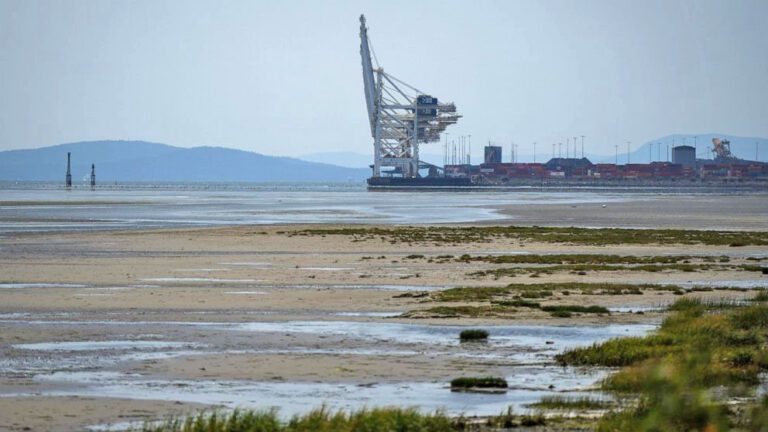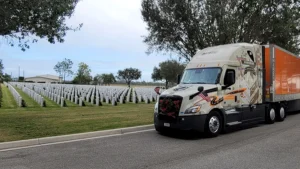VANCOUVER, British Columbia — A tentative deal was reached Thursday between employers and workers in a strike that has halted shipments in and out of ports in Canada’s west coast region of British Columbia for nearly two weeks.
A statement from the BC Maritime Employers Association said it had reached a tentative agreement with the International Longshore and Warehouse Union. The strike by 7,400 members of the union began July 1 and shut down more than 30 west coast ports, including Canada’s largest, the Port of Vancouver.
The tentative deal comes after federal Labor Minister Seamus O’Regan ordered a mediator to issue terms of a possible settlement earlier this week, saying the gap in the deadlocked talks was “not sufficient to justify a continued work stoppage.”
In a tweet responding to the tentative deal, O’Regan says “the strike is over,” and the “parties are finalizing details for the resumption of work at the ports.”
The four-year deal is subject to ratification by both parties, so details are not yet being released.
The affected ports handle cargo worth over 800 million Canadian dollars ($600 million) every day.
Business groups and the provincial governments had called on the national government to force an end to the strike.
The Greater Vancouver Board of Trade said that as of Wednesday there were 63,000 shipping containers stuck on vessels waiting at British Columbia ports to be unloaded, and that number would have ballooned to 245,000 had the strike persisted to the end of July.
The Associated Press is an independent global news organization dedicated to factual reporting. Founded in 1846, AP today remains the most trusted source of fast, accurate, unbiased news in all formats and the essential provider of the technology and services vital to the news business. The Trucker Media Group is subscriber of The Associated Press has been granted the license to use this content on TheTrucker.com and The Trucker newspaper in accordance with its Content License Agreement with The Associated Press.















